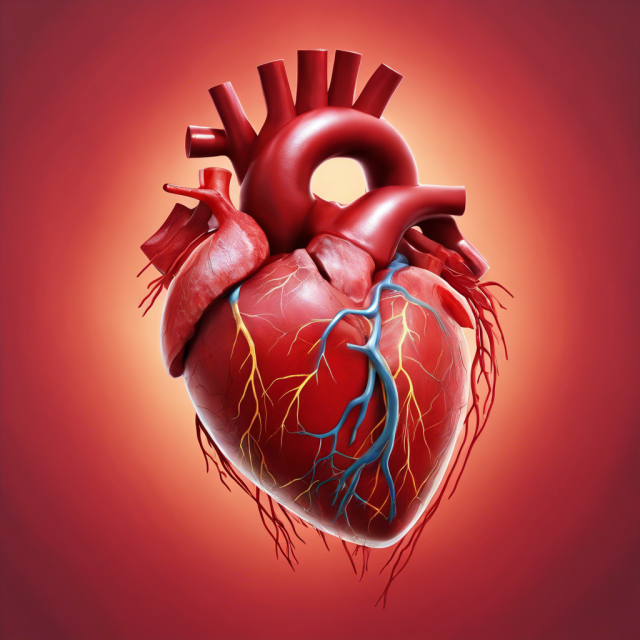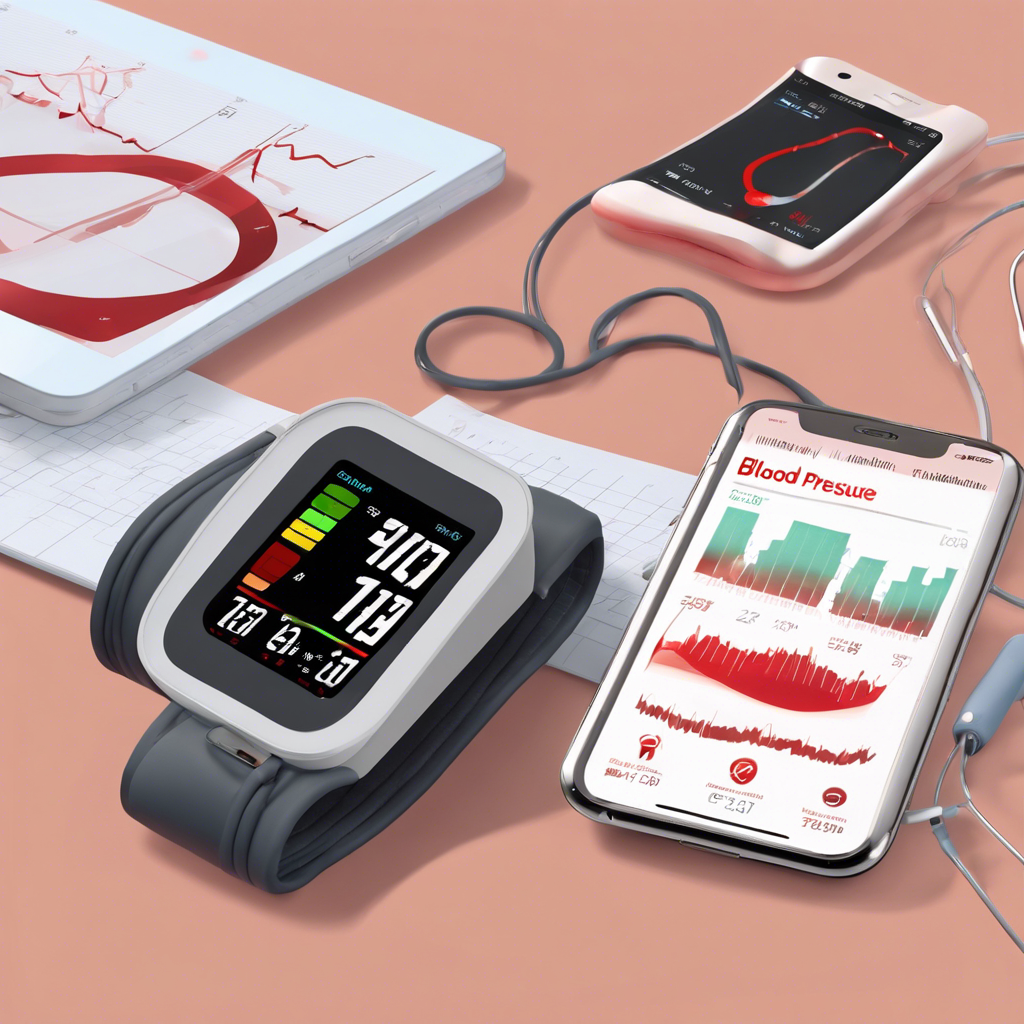High Blood Pressure: Understanding Causes and Preventions

High blood pressure, also known as hypertension, is a common health condition that affects millions of people worldwide. It occurs when the force of blood against the walls of the arteries is consistently too high, putting excessive strain on the cardiovascular system. In this article, we will explore the causes of raise blood pressure and discuss effective ways to prevent its onset.
Causes of High Blood Pressure:
1. Unhealthy Lifestyle Habits: Poor dietary choices, excessive salt intake, lack of physical activity, smoking, and alcohol consumption can contribute to hypertension.
2. Genetic Factors: Family history of hypertension can increase the risk of developing blood pressure.
3. Age: As we age, the risk of developing high blood pressure increases.
4. Chronic Conditions: Conditions such as diabetes, kidney disease, and sleep apnea can contribute to hypertension.
5. Stress: Prolonged periods of stress can lead to elevated blood pressure levels.
Symptoms of High Blood Pressure:
1. Often, high blood pressure is referred to as the “silent killer” because it typically does not cause noticeable symptoms. Many people with high pressure may not even realize they have it until it is detected during a routine check-up.
2. In some cases, individuals with extremely elevated blood pressure may experience symptoms such as:
a. Headaches: Persistent headaches, especially in the morning, may be a symptom of blood pressure.
b. Dizziness or lightheadedness: Feeling dizzy or lightheaded, particularly when standing up quickly, can be a sign of elevated blood pressure.
c. Blurred Vision: Vision problems or blurred vision can occur in some cases of high blood pressure.
d. Chest pain: Severe chest pain or chest tightness may be a symptom of elevated blood related heart problems.
e. Shortness of breath: Difficulty breathing or shortness of breath can sometimes be associated with high blood pressure.
f. Fatigue: Persistent fatigue or feeling excessively tired without a clear reason may be linked to high blood pressure.
g. Nosebleeds: Although not a common symptom, frequent nosebleeds can sometimes occur in individuals with high blood pressure.
It is important to note that these symptoms can also be attributed to other health conditions, and the presence of these symptoms does not necessarily indicate high blood pressure. Regular blood pressure check-ups are crucial for early detection and proper management of high blood. If you experience any of these symptoms or have concerns about your blood pressure, it is advisable to consult a healthcare professional for an accurate diagnosis and appropriate guidance.
Prevention of High Blood Pressure:
1. Maintain a Healthy Weight: Achieving and maintaining a healthy weight through a balanced diet and regular exercise can help prevent blood pressure.
2. Follow a Balanced Diet: Consume a diet rich in fruits, vegetables, whole grains, lean proteins, and low-fat dairy products. Limit the intake of saturated and trans fats, cholesterol, and sodium.
3. Reduce Sodium Intake: Excessive salt consumption can lead to fluid retention and increased pressure. Limit sodium intake by avoiding processed foods, using herbs and spices for flavoring, and reading food labels.
4. Engage in Regular Physical Activity: Aim for at least 150 minutes of moderate-intensity aerobic activity or 75 minutes of vigorous-intensity activity per week. Regular exercise helps to maintain a healthy weight and keeps the cardiovascular system strong.
5. Limit Alcohol and Quit Smoking: Excessive alcohol consumption and smoking can raise pressure levels. Limit alcohol intake and seek help to quit smoking if needed.
6. Manage Stress: Practice stress-reducing techniques such as meditation, deep breathing exercises, yoga, or engaging in hobbies to manage stress effectively.
7. Regular Health Check-ups: Regular blood pressure checks and routine medical check-ups can help identify and manage high blood pressure early on.
8. Medication and Treatment: If lifestyle modifications are not sufficient, medications prescribed by a healthcare professional may be necessary. Follow the prescribed treatment plan and consult a doctor regularly.
Managing High Blood Pressure:
1. Lifestyle modifications: Making certain changes in your lifestyle can have a significant impact on managing raise blood pressure. These include:
a. Healthy diet: Follow a balanced diet that includes fruits, vegetables, whole grains, lean proteins, and low-fat dairy products. Limit the intake of sodium, saturated fats, and added sugars.
b. Regular exercise: Engage in moderate aerobic exercise for at least 150 minutes per week or vigorous exercise for 75 minutes per week. Physical activity helps lower pressure and improves overall cardiovascular health.
c. Weight management: Maintain a healthy weight or work towards achieving a healthy weight if overweight or obese. Losing even a small amount of weight can have a positive impact on pressure.
d. Limit alcohol consumption: Limit alcohol intake to moderate levels (up to one drink per day for women and up to two drinks per day for men).
e. Quit smoking: Smoking raises pressure and damages blood vessels, increasing the risk of heart disease. Quitting smoking can greatly reduce the risk of complications.
f. Stress management: Find effective ways to manage stress, such as practicing relaxation techniques, engaging in hobbies, or seeking support from friends and family.
2. Medications: In some cases, lifestyle changes alone may not be sufficient to manage raise blood pressure. In such instances, healthcare professionals may prescribe medications to help control blood pressure. It is important to take the prescribed medications as directed and regularly monitor pressure.
3. Regular monitoring: Regularly monitor blood pressure at home using a home blood pressure monitor. This will help track progress and ensure that blood pressure stays within a healthy range.
4. Regular medical check-ups: Schedule regular check-ups with your healthcare provider to monitor blood pressure and assess overall cardiovascular health. They can provide guidance, adjust medication dosages if needed, and address any concerns or questions you may have.
It is crucial to work closely with your healthcare provider to develop an individualized plan for managing high blood pressure based on your specific needs and medical history. By adopting a healthy lifestyle, taking prescribed medications, and maintaining regular medical follow-ups, you can effectively manage raise pressure and reduce the risk of complications.
Tools for Managing High Blood Pressure: get more here. tips here

1. Blood Pressure Monitor: A reliable blood pressure monitor is essential for managing blood pressure. There are two types of blood pressure monitors available: manual and digital. Manual monitors require the use of a stethoscope and an inflatable arm cuff, while digital monitors are automated and display the readings on a screen. Choose a monitor that is accurate, easy to use, and approved by medical professionals.
2. Home Monitoring Apps: Many smartphone apps are available that can help you track and monitor your blood pressure readings. These apps often allow you to record and store your readings, track trends, set reminders for medication intake, and provide visual representations of your blood pressure history. Some apps also allow you to share your readings with your healthcare provider.
3. Smartwatches and Wearable Devices: Certain smartwatches and wearable devices come equipped with blood pressure monitoring features. These devices use advanced sensors to measure blood pressure and provide real-time readings. They can also track other health metrics like heart rate, physical activity, and sleep patterns.
4. Medication Reminder Apps: Managing high blood often involves taking medications regularly. Medication reminder apps can help you stay on track with your medication schedule by sending reminders and notifications. These apps can be customized to match your specific medication regimen and can be synchronized with your smartphone or smartwatch.
5. Health and Fitness Trackers: Health and fitness trackers can provide valuable insights into your overall health and well-being. These devices can monitor physical activity, sleep patterns, heart rate, and sometimes even blood pressure. By tracking these metrics, you can better understand how lifestyle factors affect your blood pressure and make necessary adjustments.
6. Diet and Nutrition Apps: Maintaining a healthy diet is crucial for managing high blood. There are numerous diet and nutrition apps available that can help you track your food intake, count calories, monitor sodium intake, and provide personalized meal plans and recipes. These apps can make it easier to stick to a heart-healthy diet and achieve your dietary goals.
Remember, while these tools can be helpful, it is important to consult with your healthcare provider for guidance and to ensure that you are using them correctly. They can provide personalized recommendations based on your specific needs and medical history.
Hypertension is a serious health condition that can lead to various complications if left unmanaged. By adopting a healthy lifestyle, including a balanced diet, regular exercise, stress management, and avoiding unhealthy habits, we can significantly reduce the risk of developing blood pressure. Remember, prevention is key, and early detection and treatment are crucial for maintaining a healthy blood pressure level and overall well-being.
Get Blood Monitoring Tools Here
Comment (1)
Leave a Comment
You must be logged in to post a comment.
Pingback: The Heart - FitnessHub 24